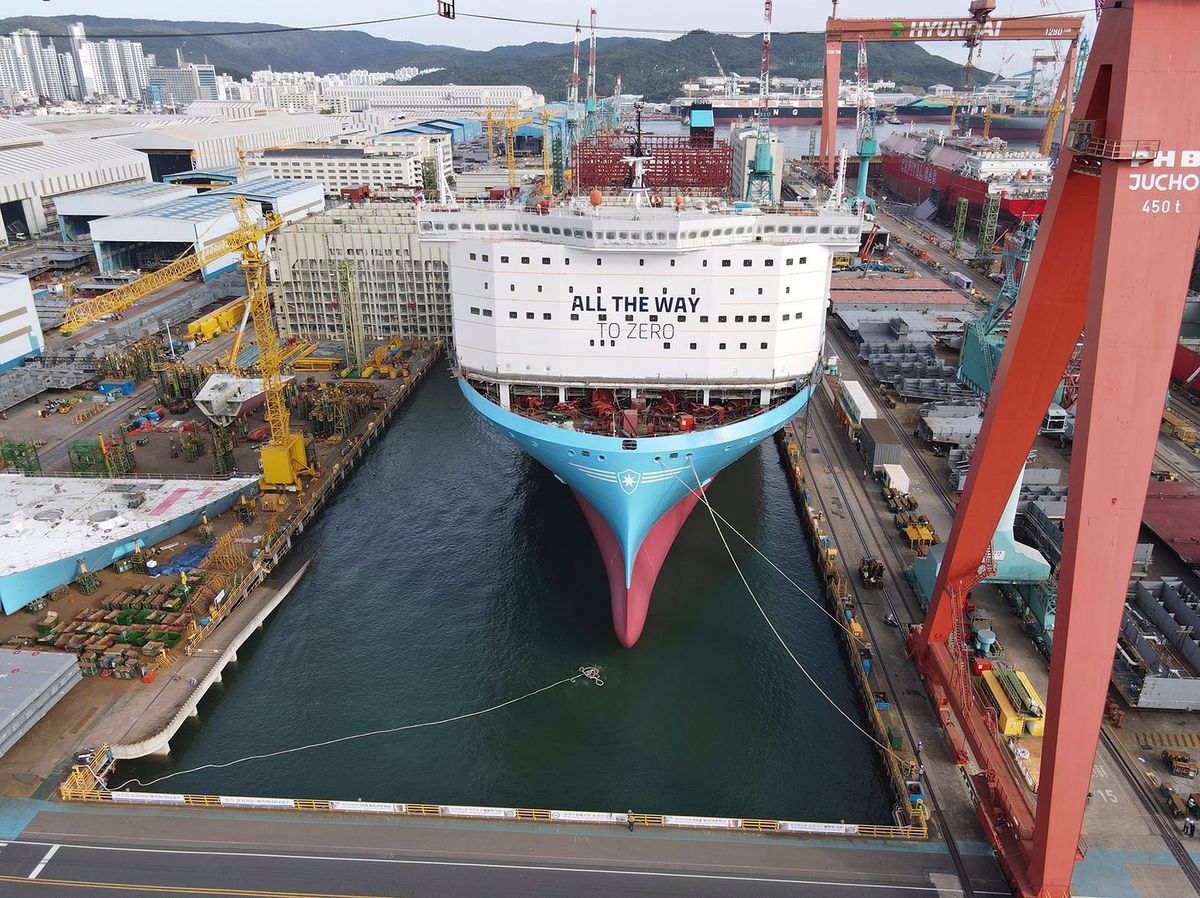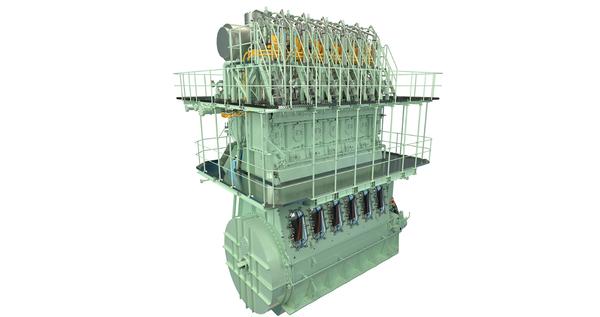Inditex teams up with Maersk to reduce GHG emissions from its seaborne logistics
Spanish clothing company Inditex has partnered with Danish shipping line A.P. Moller - Maersk (Maersk) to reduce its global greenhouse gas (GHG) emissions from seaborne logistics.
 PHOTO: Maersk’s dual-fuelled methanol vessel at the HHI shipyard in South Korea. Maersk
PHOTO: Maersk’s dual-fuelled methanol vessel at the HHI shipyard in South Korea. Maersk
Inditex, parent company of fashion brands such as Zara and Massimo Dutti, intends to cut its seaborne GHG emissions by incorporating alternative fuels in all of its inbound routes with Maersk.
Maersk has an initiative that replaces fossil fuels on its ships with green alternatives including green methanol and second-generation biodiesel based on waste feedstocks.
This enables vessels to “deliver an estimated reduction of more than 80% in GHG emissions compared to conventional sources,” Maersk claims.
Through this initiative, the Danish shipping line provides its customers the prospect to conduct their seaborne transports completely with certified green fuels for a fixed cost.
“The corresponding greenhouse gas savings are confirmed to the customers with an externally verified certificate and these transports will be exempted from EU Emissions Trading System (ETS) charges by Maersk in the future,” it adds.
Maersk has been witnessing “high and very dynamic” demand for its "very low GHG emission" logistic service.
Notably, Maersk has placed an order for 25 methanol-powered container carriers from Hyundai Heavy Industries, Hyundai Mipo Dockyard, and Yangzijiang Shipbuilding Group as part of its efforts to achieve decarbonisation goals.
This month, Maersk unveiled the design of the first of 12 new green methanol-powered containerships at South Korea's Hyundai Heavy Industries (HHI) shipyard.
By Tuhin Roy
Please get in touch with comments or additional info to news@engine.online






